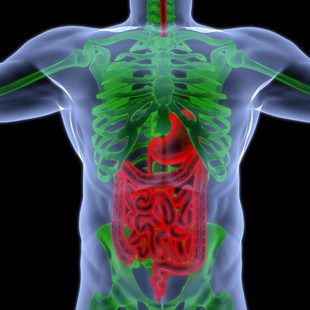Ways to Help Prevent Colon Cancer
About Colon Cancer
Cancer of the colon, sometimes known as bowel cancer, affects nearly one in 20 adults. Regular screening is the best way to prevent death from colon cancer. Most colon cancers arise from polyps, which are small outgrowths from the surface of the colon. Although the great majority of colon polyps are harmless, over time (at least 5 or 10 years) some may become cancerous.
There are many different tests that can be used to screen for pre-cancerous polyps and cancers. If performed regularly every five years, these tests can prevent any new lesions from reaching an advanced or dangerous stage.
Most guidelines recommend that from the age of 50, so talk to your GP about participating in a colon cancer screening program.
Options to Prevent Colon Cancer
- Fight weight gain – there are strong links between weight gain and colon cancer
- Try to keep your stress levels under control so you are less likely to eat for emotional reasons
- Check the quality (eat whole foods, fruits and vegetables, whole grains and lean protein), quantity (when in doubt, eat half of it or less) and frequency of eating
- You should eat often – eat healthy snacks such as fruit, veggie sticks with low fat dips such as hummus or low fat yoghurt
- Avoid processed foods
- Be accountable for your calories. If you are female and in your 40s or 50s and exercising (not an athlete), then you’ll need about 1,500 to 1,600 calories a day. An average height middle-aged man, who exercises but is not an athlete needs about 1,800 to 2,000 calories per day.
- Start a daily exercise regime
- Take up weight training
- Try out bootcamp with a personal trainer
- Take the stairs rather than the lift
- Walk to the shops rather than driving
- Moderate your intake of processed and cooked meats
- Individuals whose diets are high in red meat or processed meats (e.g. sausages, bologna, and luncheon) have an increased risk of colon cancer
- Choose canned fish such as tuna or salmon instead of luncheon meats
- Use avocado and hummus with freshly cooked skinless chicken
- Talk to your local butcher about low fat sausage options
- Choose a diet high in fruit and vegetables
- These are linked with a decreased risk. Although the exact component that leads to protection (fiber, folate, antioxidants, and certain types of fats) remains to be established, it works
- Have 5 servings of vegetables and 3 servings of fruit daily as rich sources of fiber and antioxidants
- Drink green tea as a wonderful antioxidant source
- Eat green leafy vegetables. They are the richest dietary source of folate
- Eat more whole grains and other sources of soluble fiber
- Have rolled oats in winter (rather than instant or quick oats)
- Choose raw, untoasted muesli with fruit for summer
- Try wholegrain spelt or kamut instead of wheat bread for toast
- Moderate your alcohol intake
- Heavy alcohol use has also been linked to colon cancer
- Try a ‘mocktail’ instead of a cocktail next time you are in a bar
- Choose mid-strength beer options rather than full strength
- Have 2 alcohol-free days per week
- Have one glass of wine in the evening instead of two
Last reviewed 26/Feb/2014
